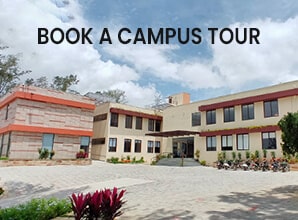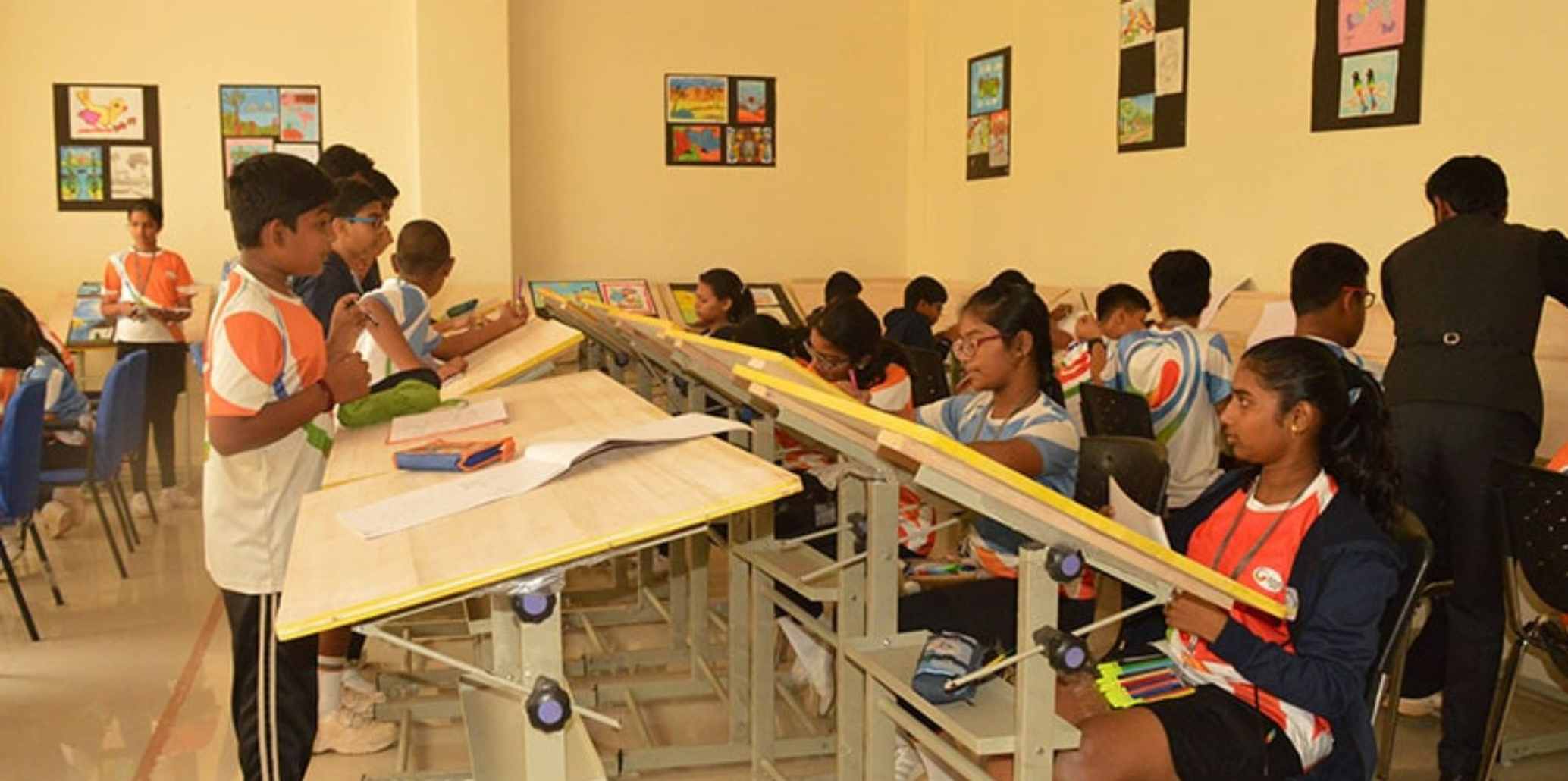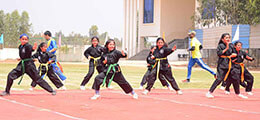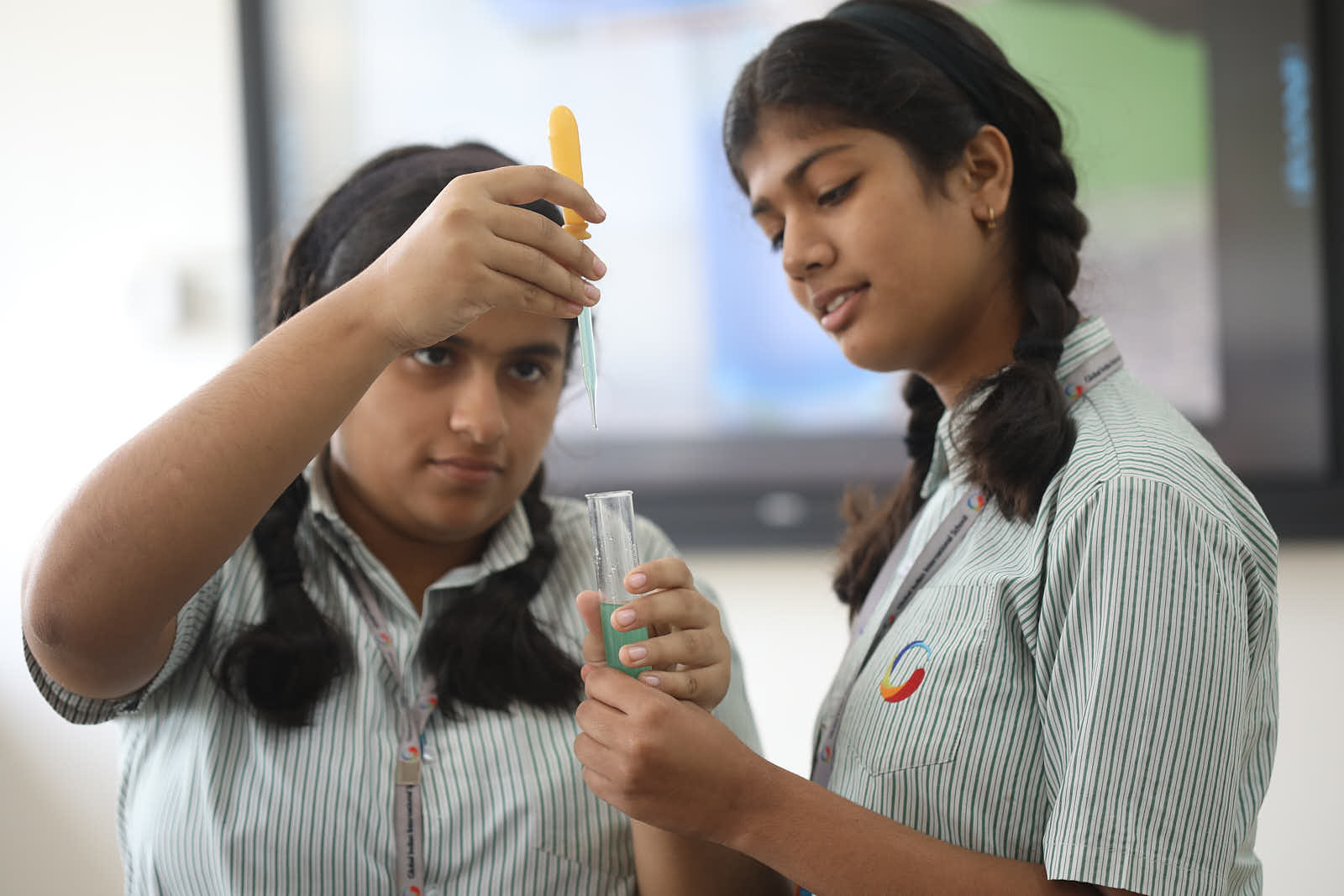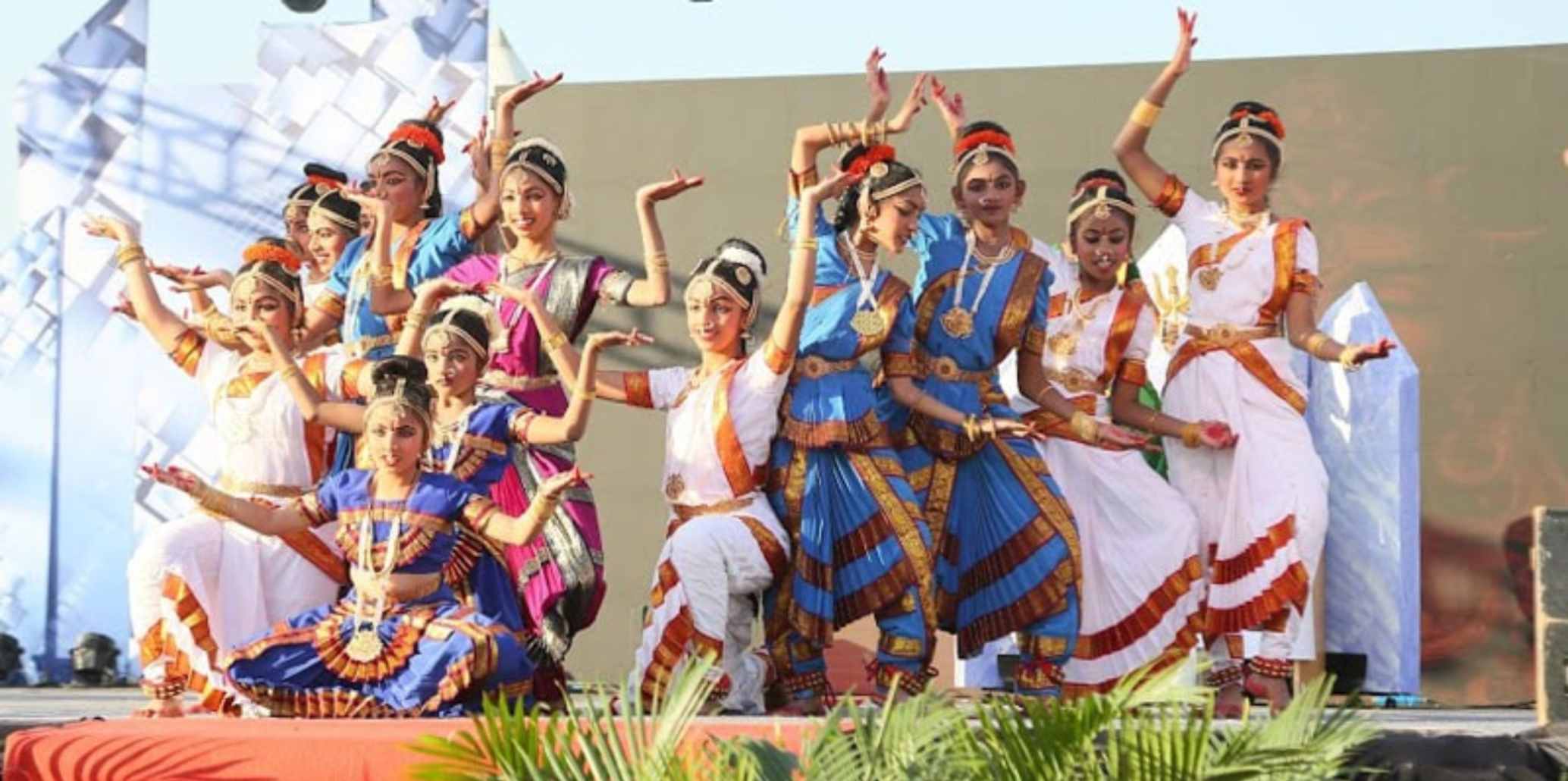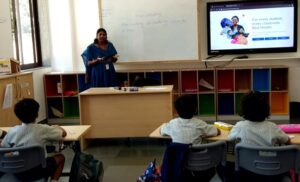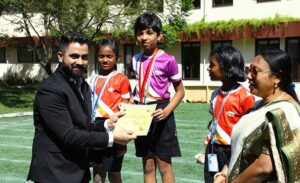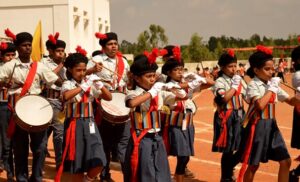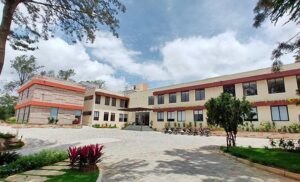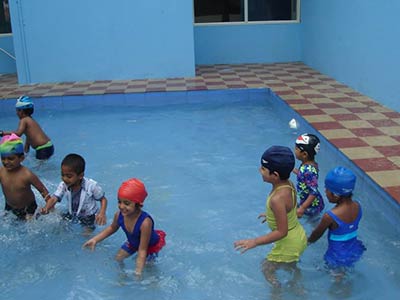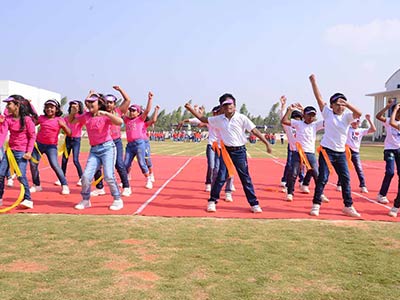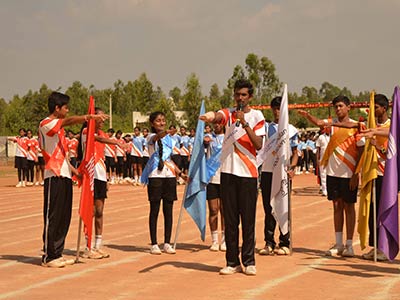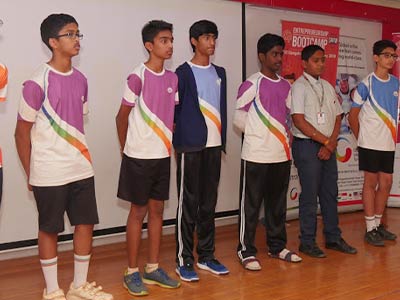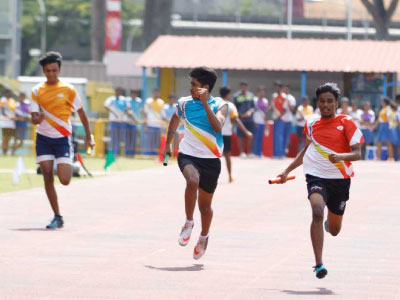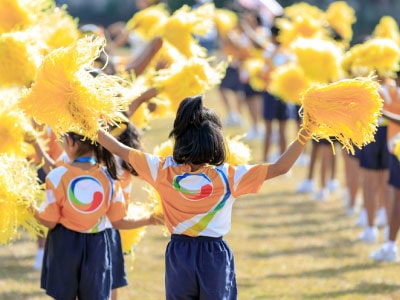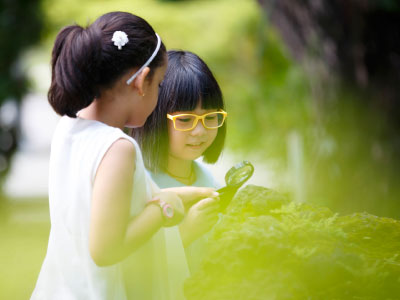Download our FREE Academic Calendar now! 📚 Start your child’s journey to success.
Primary education is the most essential and basic right of every child. It improves children’s awareness and opens the door of multiple learning opportunities. Primary education is the first step towards formal education. The overall purpose of primary education is to build and develop a child’s literacy, emotional and social skills.
Primary schooling build’s the basic framework of a child’s successful future. Owing to the importance of primary education, the best CBSE school Bangalore offers students the exposure to various modern learning methods, including technology. During primary schooling, children learn more than just reading and writing.
The personality is honed when children interact with other students from their primary school age group and they start adapting to the new environment and possible changes. There is a need for primary education not only for an individual but also for the country as it is the foundation for further education.
What is primary education?
Primary education is typically the first stage of formal education. It provides students with a basic knowledge and understanding of various subjects as well as skills they need throughout their lives. Primary school levels generally range from grade 1 to grades 4-7, depending on the school district policies and the state.
Primary education lasts 8 years in India. It aims at harmonious and full development of children. In addition to this, the main purpose of primary education in India is to promote moral, cultural, spiritual, physical and mental development of pupils in schools and in society.
Objectives of elementary education
In the age of technological advancement and globalisation we must prepare our children to thrive in the future. Schools in India should build competencies for the 21st century while preserving the values of Indian culture. The need and importance of primary education serve as the objective of primary schooling.
The basic objectives of elementary education are:
1. 6Literacy
The child should learn the first language, the mother-tongue, to a level where he will be able to communicate his ideas clearly and easily.
2. Numeracy
The child should develop the ability in four of the fundamental numerical operations and be able to apply these numerical operations to solve problems in his everyday life.
3. Technocracy
The child should learn the basic method of inquiry in science and should begin to understand the application of science and technology.
4. Nationalism
A child from primary school age itself should develop respect for national symbols like the national anthem and the flag. They must learn to dislike casteism, communalism and untouchability.
5. Human dignity
The child should learn to display a healthy attitude towards dignity and human labour.
6. Sanitary habits
The child should learn the importance of cleanliness and develop cleanliness habits and an understanding of the proper hygiene and sanitation of the neighbourhood.
7. Aesthetic Sense
The child should acquire a taste for the beautiful and good and should be willing to take care of its surroundings.
8. Cooperative Spirit
The child should learn to behave appropriately and cooperate with others. They should appreciate the usefulness of working together for a common goal.
Besides these objectives of primary education, other desirable qualities that should be developed are character and personality development, honesty, kindness, leadership, etc. These qualities should be developed during the primary school stage of the child.
Importance of primary education
Primary education forms the basis of development.
The framework of basic education starts with primary schools. Primary schools play an important role in the growth of a child and in the process of becoming better humans. Every child needs to learn the fundamentals of cooperation and communication. Thus, sending your child to primary school is very essential for their development.
While searching for private primary schools for enrolling children, parents often emphasise the private school fees. While budget is an important factor in education, there are many schools with lesser fees but no quality education. Thus quality of primary education should be the main focus of parents.
The importance of primary education in a child’s overall development is numerous in terms of:
1. Moral Values
Primary education lays the basis for children to understand moral values and principles. In addition to the standard teachings, the children in primary schools are taught the values of respecting people and their viewpoints. These factors are very essential for the overall growth, development of character, and for choosing the appropriate route.
2. Social Development
Primary school is the first place where kids learn to interact with different kinds of people, including teachers and classmates. In schools, social development is one of the objectives of primary education. Here children are exposed to a new environment, where they learn how to play, connect, and share with other students.
Primary school is also a place where children make new friends, learn to help one another, participate in sports and group activities, and much more.
3. Reading and Communication Skills
A child learns reading for the first time while pursuing primary education. Reading is one of the most beneficial habits for everyone including youngsters. It helps students see and imagine what they’re reading, which increases stimulation and memory. Furthermore, reading improves a child’s conversational and communication skills.
4. Becoming Confident
When a child attends primary school, they are exposed to a positive and learning environment where the teachers are properly trained to deal with young students. Children learn and develop in an encouraging and supportive environment, and primary education helps them in becoming more self-assured.
5. Promotes Independence
One of the aims of primary education is to promote independence among the children. Independence being one of the important factors for growth, a child gets to develop his/ her true self when they are away from their mothers.
They get an opportunity to work independently and thus use their own intellect to perform activities. Primary education trains children to Perform, Fail, Learn and Repeat!
What are the 3rs in primary education?
When talking about children’s education the 3rs in primary education are a great tool for teaching and practising various essential skills and traits the child will need to become an individual as a whole.
1. Relationships
Nurturing, healthy and responsive relationships are the foundation for early learning and healthy development of children. From the time they are born, kids have thousands of interactions every day with their parents, family members, and friends.
Preschoolers and toddlers also have many interactions with other kids. When children have positive and consistent interactions with others, they are experiencing relationships that support their learning and brain development.
2. Repetition
Hearing parents and teachers repeatedly use a particular word helps children learn new skills or master those they have already learned. Repeated learning opportunities within daily routines help children build connections in the brain that advance learning and development.
3. Routines
Repetitions and Relationships should occur in the context of everyday activities and routines. Routines are usually predictable and often have several steps (e.g., having baths, eating lunch, reading books). Everyday activities and routines provide many opportunities for children to learn new skills and practise them.
Some activities and routines happen at home, while others happen in the school or community. Many happen in more than one place, so kids get repeated opportunities to engage in responsive and nurturing relationships.
Why is primary education important for development?
Primary education is necessary to instil in children the ability to think critically, achieve higher levels of living, enhance citizenship and fundamental values. Most schools understand the importance of elementary education and thus have declared elementary education as the basic right of all the citizens.
Character development of an individual begins at a young age which primary education aims to help children develop in them. Primary education offers children an opportunity to acquire basic knowledge and skills that they would need in future. It provides students an environment where they can experiment, explore, and learn at their own pace.
Primary education also helps children develop social skills like communication, cooperation, and empathy which are essential for a child’s development.
Conclusion
Primary education paves the way for a child’s overall development and future success. It is in primary school that kids learn foundational skills that prepare them for work, life and active citizenship.
The basic answer to the question: what is primary education is that- it is an education that empowers the younger generation to safeguard their health, well-being, and break the cycle of poverty. Primary education is not restricted to only dealing with books and learning but it also highlights the significance of hygiene and cleanliness.
It can be said that primary education is the incubator for the next generation of thinkers, innovators and leaders. The future of our nation India depends upon the children of today. Each and every child deserves to receive a quality education.
FAQs
What grade is primary education?
Primary education in India is from grade I to IV.
What age is a primary school?
The primary school age of children are –
Lower primary- for children aged 6 to 9
Upper primary- for children aged 10 to 12
Should English be taught in primary education?
Yes. Teaching English at the primary level will provide children more opportunities to know and understand foreign culture and be more respectful and tolerant of others.
What is the purpose of primary education?
The purpose of primary education is to make sure that children develop completely as an individual and as a responsible citizen.
Are elementary education and primary education the same?
Yes. Elementary education and primary education are the same.

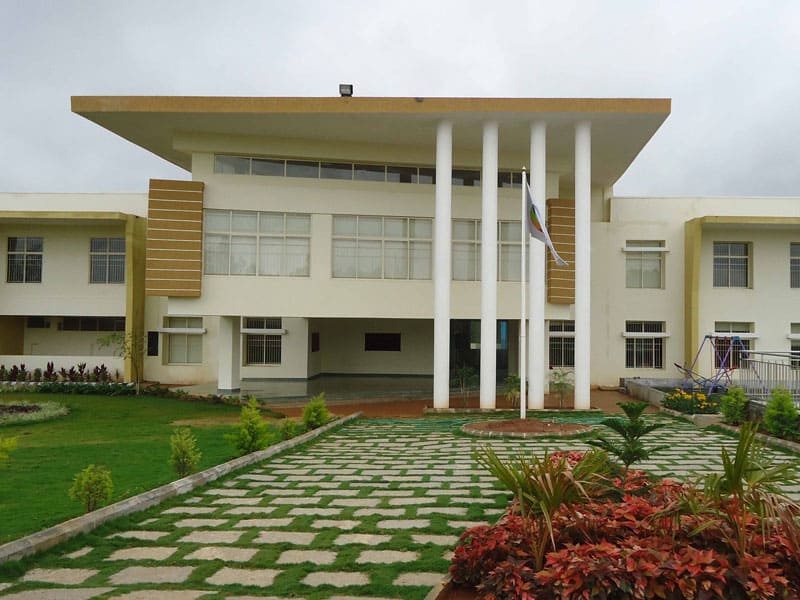
 Bannerghatta Campus
Bannerghatta Campus